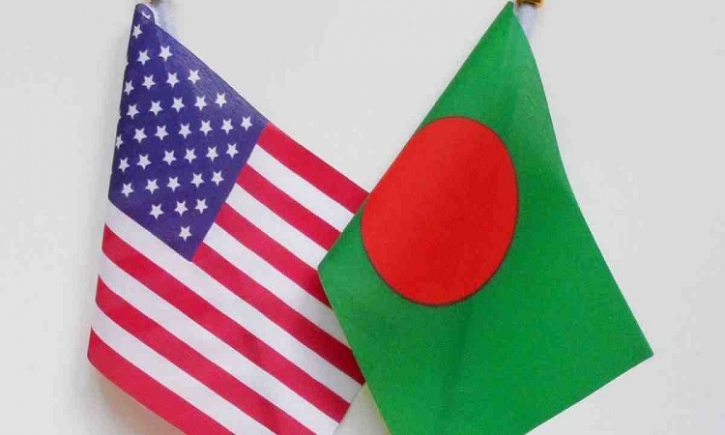US keen to help Bangladesh diversify its private sector
It sees opportunities in high-value areas including digital econo
BI Report || BusinessInsider

Dhaka (Nov 1, 2020): The United States has said it wants to help Bangladesh to diversify its private sector to move some of it away from the ready-made garment (RMG) industry into other high-value areas including the digital economy.
“I can tell you that from the US government perspective, one of the things that we’re looking at to help Bangladesh with, is how Bangladesh can diversify its private sector...,” US Agency for International Development (USAID) Deputy Administrator Bonnie Glick said in a telephonic briefing.
US Under Secretary of State (Economic Growth, Energy, and the Environment) Keith Krach also spoke at the recent briefing, reports UNB.
Glick said Bangladesh, in order to be a competitive player in the Clean Network, has taken some important steps towards the Clean Path, and coming in line with Clean Network requirements.
The Deputy Administrator said she announced the new memorandum of understanding that was with a consortium of US retail, apparel, and footwear companies and industry associations with an eye toward helping supply chain workers, most of whom are women, in Bangladesh, Sri Lanka, Vietnam, and Cambodia.
“These are countries that rely heavily for their growth in income on the garment industry, and this is a sector that was particularly hard-hit by the Covid-19 pandemic,” said Glick.
USAID Deputy Administrator Bonnie Glick on Wednesday made the announcement at the US Government’s third annual Indo-Pacific Business Forum hosted virtually out of Hanoi, Vietnam.
The Covid-19 has had a devastating impact on global supply chains. "It has disrupted trade and investment. It has put frontline workers at risk and eliminated the jobs of millions of other workers, especially women, and it has done so with unprecedented speed and scale," she said.
The apparel, footwear and fashion accessories sector in Asia has been among the most affected industries challenged by supply-and-demand constraints that arose from stay-at-home orders, temporary business closures, production stoppages, backlogs in shipment, cargo delays, and other things.
"The MoU that we signed establishes an intent to work together over the coming year on efforts that will help alleviate hardships faced by the predominantly women workers in the companies’ supply chains in these four countries," Glick said.
And these efforts, in collaboration with local partners, are aimed to help to foster a more resilient sector and workforce, she said.
"It’ll enhance factory worker rights and welfare, and it’ll better empower women workers."
The participating companies and industry associations are that are partnering with through the MoU are Carter’s Incorporated, Gap Incorporated, Global Brands Group, Levi Strauss & Co, Nike, Tapestry, Target, VF Corporation (that’s V like victory, F like francisco Corporation), Walmart, American Apparel and Footwear Association, the National Retail Federation, the Retail Industry Leaders Association, and the US Fashion Industry Association.
Since last year’s Indo-Pacific Business Forum (IPBF), which was in Bangkok, USAID has dedicated $250 million to expand partnerships with governments, civil society, and the private sector in countries across the Indo-Pacific region in support of economic growth activities including energy, infrastructure, digital connectivity, and trade.
The level of investment that is open and ready for -- just to meet current needs, is over $2 trillion by 2030.
























